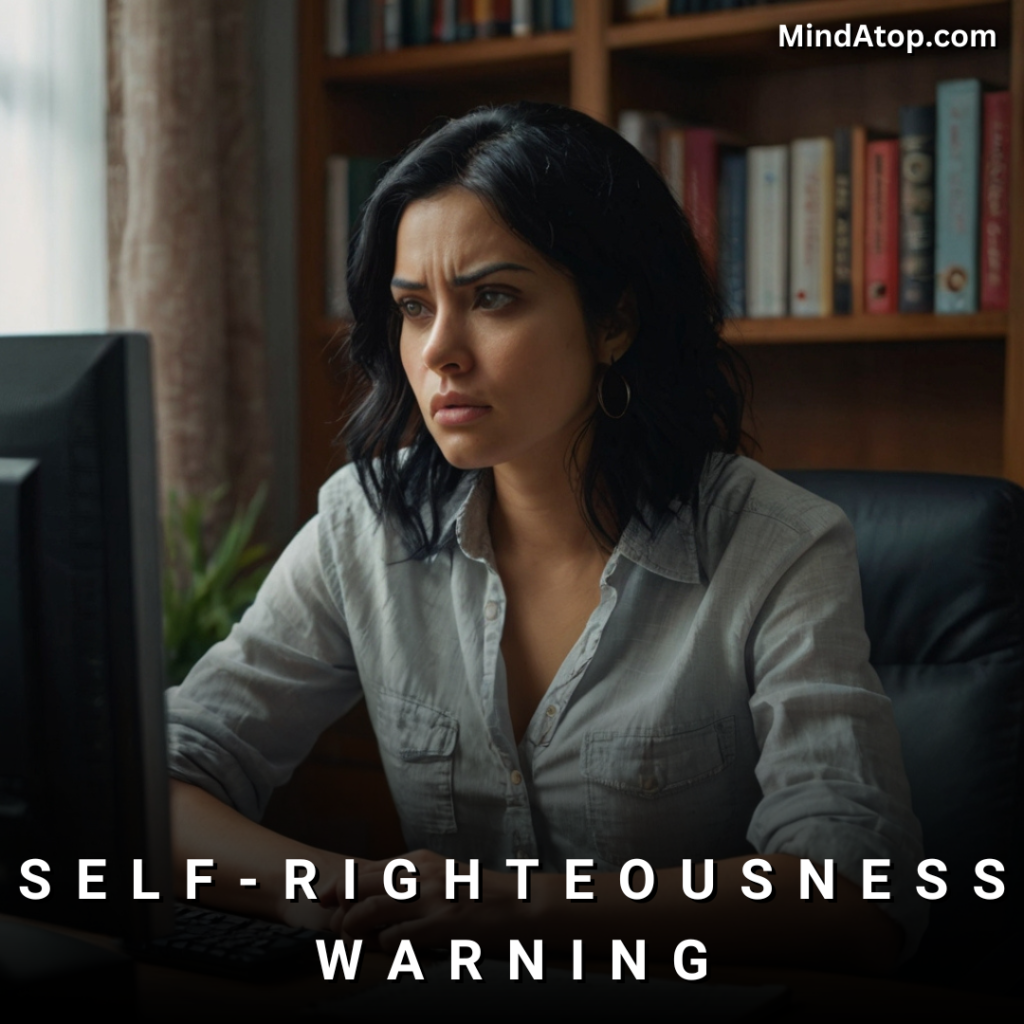Pritha was a passionate young woman, and social media was her battleground, a place where she vented her anger at everything wrong in the world. Corruption, environmental destruction, gender inequality—her feed was a relentless tirade against injustice. Her posts were often filled with strong words and sharp judgments, her fingers itched to type out her outrage. “Why are we so blind to these issues?” she exclaimed in one post. With every post, she believed she was rallying her friends and followers to join her cause.
“People are so selfish!” she typed furiously one day, her words sharp and stinging. The very next day, she shared a graphic video about deforestation with the caption: “We deserve this planet’s destruction for our apathy.”
At first, her posts resonated with her followers. They liked, commented, and shared her content, praising her for speaking the hard truths. But as weeks turned into months, Pritha’s tone grew angrier, her accusations harsher. The once lively discussions beneath her posts faded.
One day, she noticed something unsettling—a close friend had unfollowed her. Then another. Her posts, once filled with engagement, were now met with silence.
“People are cowards,” she muttered, scrolling through her diminishing follower count. “They just don’t want to face the truth.”
But deep down, doubt began to creep in. What if it wasn’t apathy? What if it was because of her?
Pritha’s anger spilled over into her real life. She snapped at her parents during dinner, accusing them of “living in their bubble.” Her nights were restless, her mind swirling with the weight of a world she couldn’t fix. She started avoiding her mirror, unable to face the dark circles under her eyes and the hollowness in her expression.
One evening, after yet another post was ignored, Pritha sat staring at her phone, tears streaming down her face. Her anger felt meaningless, her efforts futile. The silence was deafening. “What’s the point? I’m losing out.” she mumbled in the empty room.
While aimlessly scrolling through her phone one night, a post from her childhood friend Nandini caught her eye. The caption read: “Taking action, one step at a time. Today, we planted 50 trees with a group of local farmers. Small steps lead to big changes!”
The accompanying photos showed Nandini, beaming with dirt-streaked hands, surrounded by villagers holding saplings. The comments were flooded with encouragement and offers to join.
Pritha felt a wave of jealousy. This isn’t enough! she thought bitterly. “Planting a few trees won’t stop the destruction,” she mumbled. Her frustration boiled over. “Why are people celebrating this? It’s so superficial!”
Despite her irritation, Pritha couldn’t help but revisit the post again and again. Something was nudging her deep inside. But what was it? She didn’t understand.
The next day, Nandini’s post went viral, and one of the villagers shared a story that shook Pritha. The farmers, once victims of illegal deforestation, had decided to reclaim their land by planting trees. Nandini had organized the drive, providing saplings and tools. A video showed villagers laughing and working together, their hope palpable.
Pritha felt her chest tighten. This is what I’ve been screaming about all along—deforestation. But while I was busy shouting, Nandini was working quietly.
Her heart clenched as she recalled the stark contrast between Nandini’s post and her own angry outbursts. Am I just all talk?
Summoning courage, Pritha reached out to Nandini. “Hey, I saw your post about the tree plantation. Can I… join you next time?” she typed hesitantly.
Nandini responded almost instantly. “Of course, Pritha! Would love to have you with us.”
The next week, Pritha found herself in a village, her hands dirty and her heart lighter. She worked side by side with the farmers, planting saplings under the open sky. For the first time in months, she felt like she was making a tangible difference.
Later that evening, Pritha stood under the shade of a newly planted sapling. Nandini walked up beside her, handing her a bottle of water.
“You know,” Pritha said quietly, “I thought anger was the only way to wake people up. But it doesn’t work, does it? It just pushes them away.”
Nandini smiled gently. “Anger might make people notice you, but it doesn’t inspire them. When you lead with hope, they don’t just listen—they act.”
Pritha nodded, a newfound clarity settling over her. That night, she shared her thoughts online:
“Fury feels righteous, but it isolates you. Change isn’t born out of anger—it’s born out of love and action. I spent months shouting, only to realize I was losing you all, not inspiring at all. Today, I planted my first tree. The roots I saw weren’t just in the soil—they were in my heart too. Let’s choose hope over fury, action over outrage. That’s how we will truly grow.”
The post spread like wildfire, but this time, it wasn’t the likes or shares that mattered to Pritha. What mattered was the response. Volunteers signed up for the next plantation drive, inspired not by fury, but by the quiet power of action.
And as Pritha drifted to sleep that night, for the first time in a long while, her heart felt at peace. She hadn’t just reclaimed her voice—she had finally found her purpose.

